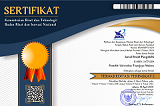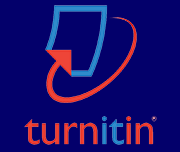Alih Teknologi Diversifikasi Berbasis Nanas sebagai Produk Unggulan Desa Karangjengkol dan Rintisan Ekowisata Kawasan Hutan dengan Tujuan Khusus (KHDTK)
Abstract
The productivity of pineapple in Karangjengkol Village, Purbalingga Regency is 110 million/Ha/year. Based on the situation analysis, currently pineapple sales use the slashing system and the existing processed products are jam, jam and pineapple dodol with low quality. As a result, the price obtained is low and the shelf life of pineapple and its processed products is relatively short, which is 3 days for fresh pineapple and 14 days for its processed products. The objectives of this community service are: 1) To find out the understanding and implementation of pineapple dodol and instant powder processing techniques. 2) To find out the level of mastery of target group members regarding simple post-harvest technology, namely grading, coating harvest wounds with rosella antimicrobial bioactive compounds. After the technology transfer, the increase in the number of people who know the proper and correct processing methods regarding dodol, instant powder and grading increased, respectively: 17%, 22% and 34%. Grading and rinsing wounds with rosella extract disinfectant can prevent contaminants and extend the shelf life of fresh pineapple. In the manufacture of instant powder, stirring after caramelization and stopping the heat source must be done quickly and without pause until small crystals are formed. In the processing of dodol, the right stirring and temperature affect the quality attributes of the resulting dodol.
Keywords
Full Text:
PDF (Bahasa Indonesia)References
Alamin, R. L., & Hasmawaty, A. (2024). Strategi Meningkatkan Nilai Tambah Produksi Nanas dalam Pengembangan Unit Mikro Kecil dan Menengah Masyarakat Berbasis Ekonomi Kreatif. Management Studies and Entrepreneurship Journal (MSEJ), 5(2), Article 2. https://doi.org/10.37385/msej.v5i2.4327
Bera, L., Wada, Y. F., Anjeja, M. O., Doa, M. F. T., Mite, L. S., Putri, M. I., Hilvanto, S., Nago, F. B., Lukas, Y. A. M., Bota, G. D., & Dorce, M. F. (2024). Pengolahan tepung dari serat pohon gebang menjadi dodol khas desa adabang. Community Development Journal : Jurnal Pengabdian Masyarakat, 5(5), 9373–9379. https://doi.org/10.31004/cdj.v5i5.35589
Condro, N., & Stefanie, S. Y. (2022). Kandungan gula buah nanas madu (ananas comosus l.merr) pada tingkat kematangan yang berbeda. DINAMIS, 19(2), Article 2. https://doi.org/10.58839/jd.v19i2.1175
Fauzi, N. I., Herawati, I. E., & Hadisoebroto, G. (2023). Kadar Fenolik Total, Kadar Flavonoid, dan Aktivitas Antioksidan Dari Ekstrak Kulit Buah Nanas (Ananas comosus (L.) Merr.) Varietas Pemalang. Jurnal Mandala Pharmacon Indonesia, 9(2), Article 2. https://doi.org/10.35311/jmpi.v9i2.413
jaenudin, mupti, & ilyas, amin. (2023). Creative Economic Development in the Management of Mrs. Wiwin Dodol to Increase Community Income in Caringin Village, Caringin District based on Sharia Economy. ALIF: Sharia Economics Journal, 2(2), 51–15.
Khairi, A., & Furayda, N. (2023). Karakteristik Fisikokimia Minuman Serbuk Instan Dengan Variasi Bonggol Nanas (Ananas comosus Merr) dan Maltodekstrin. Pasundan Food Technology Journal, 10, 18–24. https://doi.org/10.23969/pftj.v10i1.6998
Maksum, A., Purbowati, I. S. M., & Wijonarko, G. (2024). Technology Transfer and Good Manufacturing Practices for Robusta Coffee as a Leading Product of Educational Tourism in Wonodadi Village, Buayan District. Dharmahita: Journal of Community Service and Development, 89–94. https://doi.org/10.28918/dharmahita.v1i2.8898
Maksum, A., Ramadhani, S., Purbowati, I. S. M., & Wijonarko, G. (2023). Evaluasi Kinerja Disinfectant Agent Dan Konsentrasi Emulsi Lilin Lebah Terhadap Atribut Mutu Nanas Madu (Ananas comosus (L.) Merr). Journal of Agricultural and Biosystem Engineering Research, 4(1), Article 1. https://doi.org/10.20884/1.jaber.2023.4.1.8868
Maulidia, L., Khathir, R., & Ratna, R. (2017). Pengaruh Bentuk Irisan Nanas Terhadap Mutu Simpan Terolah Minimal. Jurnal Ilmiah Mahasiswa Pertanian, 2, 266–275. https://doi.org/10.17969/jimfp.v2i3.4135
Mursalin, M., Nizori, A., & Rahmayani, I. (2019). Sifat Fisiko-Kimia Kopi Seduh Instan Liberika Tungkal Jambi yang Diproduksi Dengan Metode Kokristalisasi. Jurnal Ilmiah Ilmu Terapan Universitas Jambi, 3(1), Article 1. https://doi.org/10.22437/jiituj.v3i1.7344
Nadhira, R., & Cahyana, Y. (2023). Kajian sifat fungsional dan amilografi pati dengan penambahan senyawa fenolik: kajian pustaka. Jurnal Penelitian Pangan (Indonesian Journal of Food Research), 3(1). https://doi.org/10.24198/jp2.2023.vol1.1.03
Nugraheni, A., Syakur, A., & Setyawan, A. (2022). Teknologi pengaduk pada produksi dodol nanas madu di kwt berkah tani desa belik kabupaten pemalang. Inisiatif: Jurnal Pengabdian Kepada Masyarakat, 1(1), 28–31.
Purbowati, I., Maksum, A., & Wijonarko, G. (2023). Improving Performance of Edible Coating Protection on The Honey Pineapple Quality Attributes Through the Addition of Roselle (Hibiscus sabdariffa) Bioactive Compounds (pp. 125–134). https://doi.org/10.2991/978-94-6463-128-9_15
Purbowati, I. S. M., Maksum, A., & Kurniawan, R. E. K. (2024). Alih Teknologi Pengolahan dan Pengemasan Produk Gula Nipah Sebagai Produk Ikonik Wisata Kawasan Ekosistem Esensial, Desa Ayah Kabupaten Kebumen. Dharma Abdimas : Jurnal Pengabdian Masyarakat, 1(1), Article 1. https://doi.org/10.20884/1.da.2024.1.1.12175
Purbowati, I. S. M., Maksum, A., Ritonga, A. M., & Kurniawan, R. E. K. (2022). Optimization of vitamin c extraction of roselle petals (Hibiscus sabdariffa) assisted with microwaves using response surface methodology. Food Research, 6(6), 88–95. https://doi.org/10.26656/fr.2017.6(6).639
Purbowati, I., Syamsu, K., Warsiki, E., & Rukmini, H. (2015). Evaluasi toksisitas, aktivitas antibakteri dan antioksidan komponen bioaktif rosela dengan variasi jenis pelarut (evaluation on toxicity. Jurnal Teknologi Industri Pertanian (Journal of Agroindustrial Technology), 25, 182–189.
Riska, A., Prastiwi, R., Halin, H., & Hildayanti, S. K. (2023). Pelatihan pengolahan pangan lokal berbahan baku nanas program mbkm kkn tematik indo global mandiri. Jurnal Pengabdian Mandiri, 2(1), Article 1.
Setiavani, G., Sugiyono, S., Ahza, A. B., & Suyatma, N. E. (2018). Teknologi Pengolahan Dodol dan Peningkatan Kandungan Gizinya. JURNAL PANGAN, 27(3), Article 3. https://doi.org/10.33964/jp.v27i3.388
Syahwildan, M. (2020). Pengembangan Kualitas Manajemen UKM Dodol Dalam Upaya Peningkatan Kuliner Tradisional Khas Kabupaten Bekasi. Jurnal Abdimas Kartika Wijayakusuma, 1(1), Article 1. https://doi.org/10.26874/jakw.v1i1.12
Tangkeallo, C., & Widyaningsih, T. D. (2014). Aktivitas antioksidan serbuk minuman instan berbasis miana kajian jenis bahan baku dan penambahan serbuk jahe. Jurnal Pangan dan Agroindustri, 2(4), 278–284.
DOI: https://doi.org/10.21107/pangabdhi.v11i1.27954
Refbacks
- There are currently no refbacks.
Copyright (c) 2025 Ike Sitoresmi Mulyo Purbowati, ali maksum, gunawan wijonarko

This work is licensed under a Creative Commons Attribution-ShareAlike 4.0 International License.
Jurnal Ilmiah Pangabdhi by Universitas Trunojoyo Madura is licensed under a Creative Commons Attribution-ShareAlike 4.0 International License.













